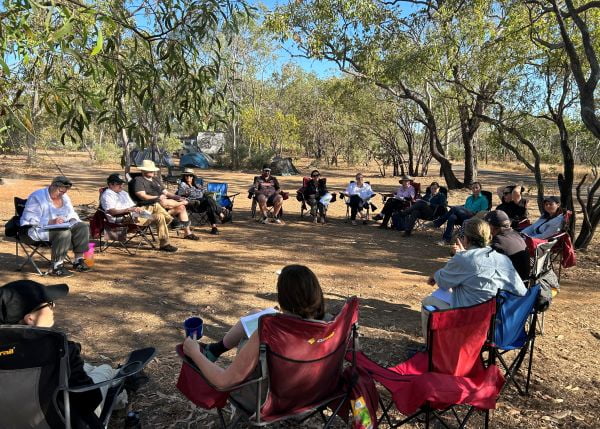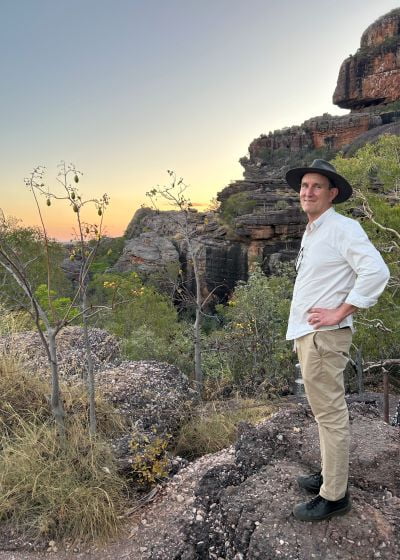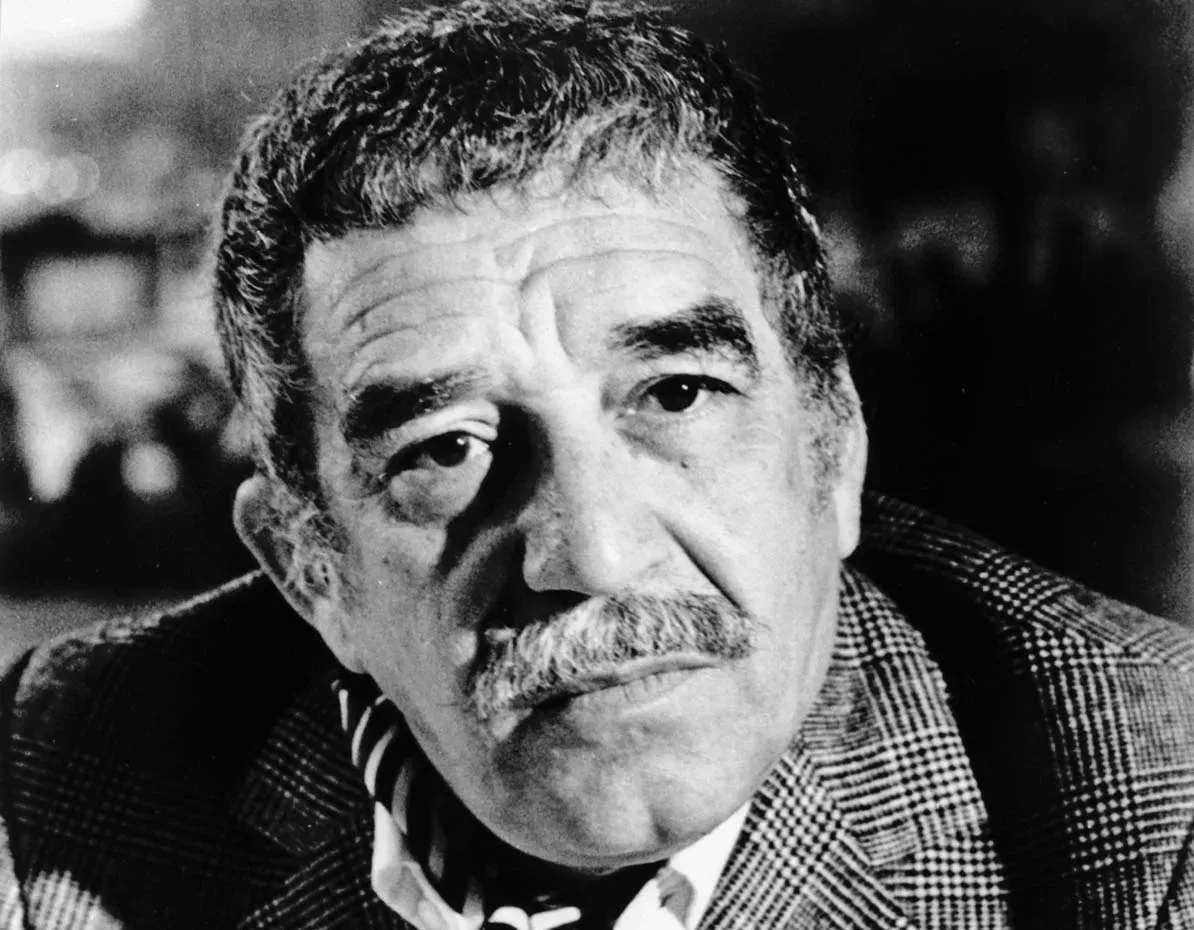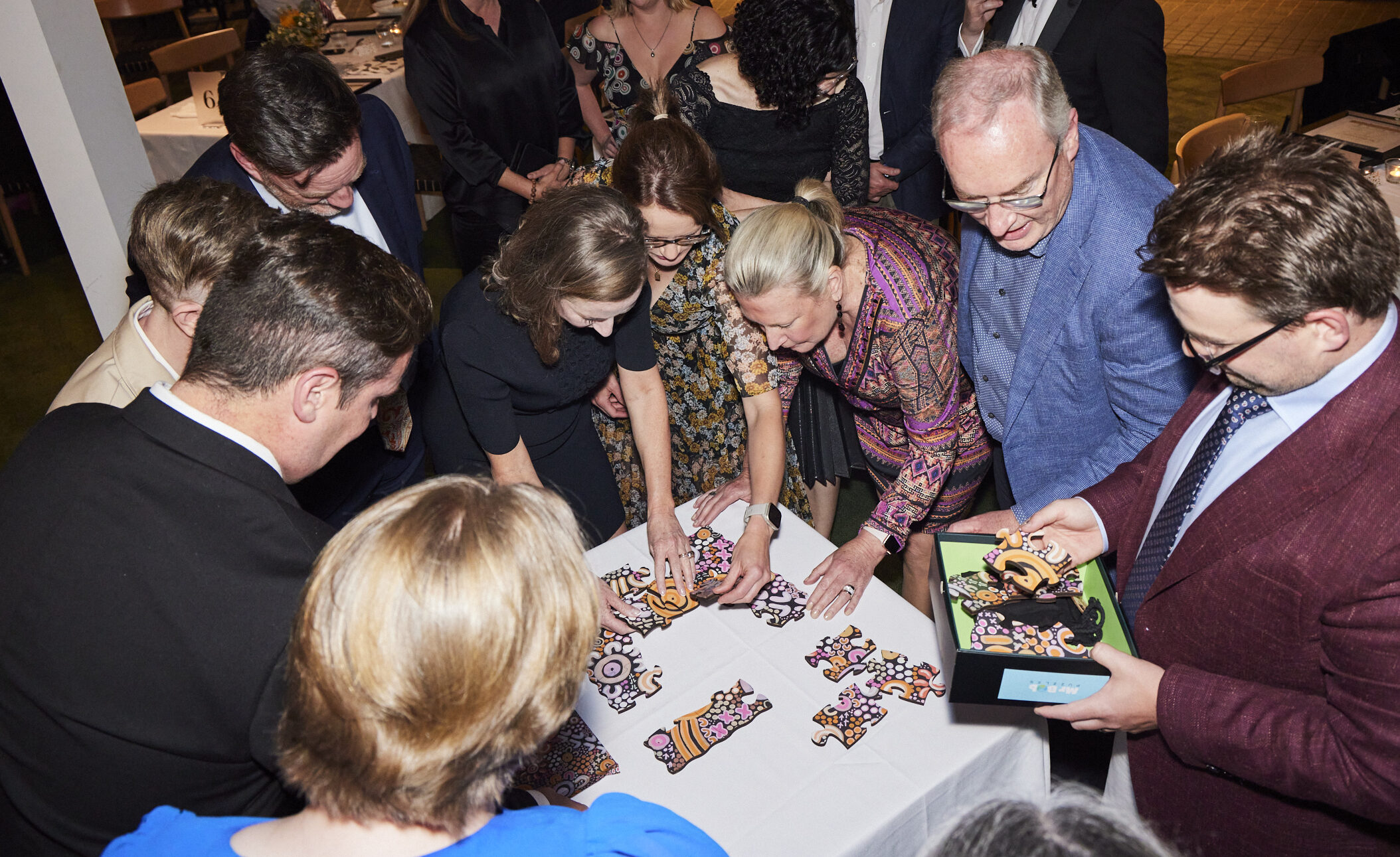Unlocking Ethical Leadership and Partnerships in Public Service: Cranlana Centre for Ethical Leadership and Charles Darwin University

In the heart of Australia’s Northern Territory, Cranlana Centre of Ethical Leadership (CCEL) and the Northern Institute came together for Delivering in Partnership with Government and Community.
In partnership, the organisations designed a six-day experience exploring ethics, the social contract and the deep partnerships between government and First Nations’ people and place.
Senior and emerging leaders from the Australian Government entered the program with the aim of better understanding First Nations culture and finding ways to work generatively in partnership with its people. 21 peers committed to the work required in the program and each came out with different but equally important ‘lessons learned’.
One of public service leaders who found the experience transformative commented on the format of the program being the foundation of its impact, saying:
“I found the experience lifechanging and my life will continue to be enriched as a result of the ethical, intercultural and intergovernmental lens that I was immersed in over the course of the week. Connecting with nature, with country, and with colleagues so passionate and experienced in the wicked problems we are all facing was invaluable. To do that in an environment where there was room to get to know each other and deeply learn together was a genius concept and key to getting so much out of the experience.”
Meghan Hibbert, Assistant Secretary Regional Connectivity, Department of Infrastructure, Transport, Communications and the Arts.
The program, moderated by Peter Mares and Richard Davis of CCEL and Greg Williams of Charles Darwin University, focused on ethical philosophy through the lens of modern organisations, paired with experiential learning ‘On Country’ in Kakadu.

Day 1: Foundations in Ethics
Participants delve into four core decision-making frameworks: utilitarianism, deontology, virtue ethics, and ethics of care. By the end of Day One, the participants have the tools to establish a common language, identify tensions and understand how these frameworks shape policy making in the public sector. The ethical work combined with historical examples of ethical complexities, acknowledging their connection to slavery and colonialism.
Day 2: The Social Contract and Self-Reflection
Day Two unravels the concept of the social contract, the implicit agreement between citizens and government in a liberal democracy. John Locke’s views on private property are explored, acknowledging their problematic legacy in Australia’s history. Participants were challenged to consider the place of First Nations’ peoples in this contract and their roles as public servants in working with First Nations communities.
Days 3-5: Immersion in Kakadu National Park
Participants receive a ‘Welcome to Country’ from Traditional Owners and embark on an orientation session. This sets the stage for participants to explore their own genealogies and the impact they’ve had on their place in the world. Visits to art sites, discussions with local hosts and gender-specific activities offered a nuanced insight into the Indigenous perspective.
Day 6: Integration and Reflection
Senior guests provide feedback, guiding participants to consider what ‘delivery in partnership’ truly means. Questions around the distinctions in working with First Nations communities, historical obligations and the challenges in bureaucracy are explored. On the final day, personal reflections were shared, using artifacts as prompts to retain connections to on-country experiences and insights.
Follow-Up Session: Continuing the Journey
The follow-up session in August challenged participants to build an action plan based around their learning. Small group projects continue, evolving briefs based on feedback and real-world constraints. Participants also share written reflections, explaining how their newfound knowledge will be integrated into their work.
Delivering in Partnership with Government and Community goes beyond moral theory; it equips people in the public sector with practical tools to empower ethical leadership. The people returning to their roles carry with them not just knowledge, but a commitment, to transform the public service and build true partnerships with Indigenous communities.
If you’d like to work with us on a customised ethics program for your organisation, start here:
Share This Story
Related articles
Recent posts
The Cranlana Method
We don’t teach leadership skills. Instead, we help leaders apply the skills they already have more wisely – by building clarity of purpose and ethical courage. Drawing on a rich history of philosophical wisdom, they encourage fresh and considered approaches to challenges – offering insights that, for many participants, will fundamentally transform their concept of leadership. Our courses are dialogue-based and immersive, bringing small groups of high-level leaders together for discussions that are wide-ranging and expertly guided. They are rigorous, in-depth and practical, providing high-level learning experiences and understanding to strengthen your capabilities as an effective and ethical leader.
Interested in discovering more?




